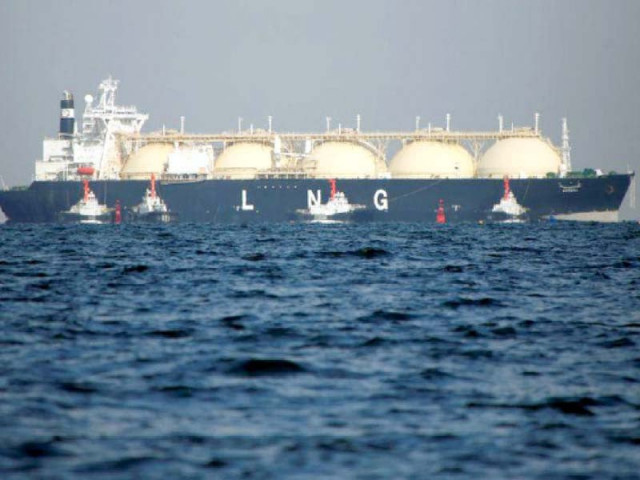Govt mulls ways to recover LNG cost
Circular debt continues to mount due to diversion of LNG to domestic consumers

The government is working on multiple plans to recover the gas cost from consumers in a bid to bail out public gas utilities amid a rising circular debt due to diversion of liquefied natural gas (LNG) to the domestic consumers.
The Pakistan Muslim League-Nawaz (PML-N) government had started importing LNG to meet energy needs of industrial and commercial sectors, mainly power producers, following shortage of locally produced gas due to depletion of existing reserves.
It also initiated a pilot project and set up LNG terminals as there had been no increase in domestic production of gas with the country facing a net shortfall of 9% every year.
LNG was not meant to be provided to the domestic consumers. The previous government set up three LNG-based power plants in Punjab with higher efficiency rates. These power plants were bound to take a minimum 66% of LNG.
However, the Pakistan Tehreek-e-Insaf (PTI) government exempted the power plants from the guaranteed offtake.
Now, the government has entered into LNG supply agreements with Qatar and other suppliers on a take-or-pay basis but there is no such agreement between the suppliers, distributors and customers. This anomaly has contributed to the rising circular debt.
The government injected LNG into the system to divert it to the domestic consumers as it sought to avoid gas shortage during the last two winter seasons but the decision led to the piling up of Rs78 billion worth of debt.
Sui Northern Gas Pipelines Limited (SNGPL) has to recover Rs78 billion from the domestic consumers but there is no legal framework in place to recover it. Therefore, the amount has been stuck in the energy chain. SNGPL has estimated a Rs69 billion worth of debt during the current year.
Despite all the problems, hurdles had been created by the state-owned gas companies in the way of opening the market for the private sector, which would help in reducing the financial risk for the government and address the issue of circular debt.
Now, the government and provinces are negotiating to introduce a weighted average cost of gas to recover the LNG cost from the consumers. But three provinces have opposed the weighted average cost. As Punjab is the major consumer of LNG, other provinces are not ready to share the cost of expensive LNG.
The issue was also taken up in a meeting of the Council of Common Interests (CCI) that directed the Petroleum Division to discuss the issue with the energy ministers of all provincial governments.
The federal government and provincial governments have discussed three options to introduce the weighted average cost of gas after injecting LNG into the system.
Firstly, the federal government has discussed a proposal to recover the average cost of locally produced gas and LNG from all consumers. Under this proposal, the gas utility companies; SNGPL and Sui Southern Gas Company (SSGC), will recover the imported cost in their overall revenue requirements.
These companies will file a petition before the Oil and Gas Regulatory Authority (Ogra) to recover the cost. Ogra will base this on the weighted average price of gas mix basket the consumer prices will be charged.
In the second option, the gas companies may recover the cost of LNG from those domestic consumers who would use this gas. Under this option, there will be no cross subsidy.
The third option is that gas utilities may be allowed to recover the actual cost of LNG from power and CNG sectors. However, the gas company may charge the remaining volume of LNG after utilisation by these sectors from all other consumers including the domestic consumers.
In the power sector, the previous government had made a policy that LNG-based power plants will not fall in the merit order of fuel supply to power generation plants. The merit order was meant that power plants would use cheaper fuel first and expensive fuel later. However, the present government had applied the merit order on LNG-based power plants that went out of merit order. The oil refineries had tactfully reduced the prices of furnace oil to qualify for merit order that led to taking LNG fuel out of merit. Therefore, LNG-based power plants had remained shut most of the time due to going out of merit order.
Published in The Express Tribune, March 23rd, 2021.
Like Business on Facebook, follow @TribuneBiz on Twitter to stay informed and join in the conversation.



















COMMENTS
Comments are moderated and generally will be posted if they are on-topic and not abusive.
For more information, please see our Comments FAQ